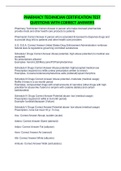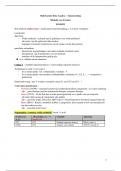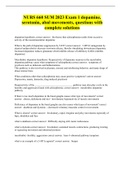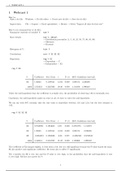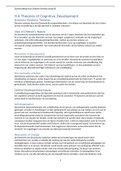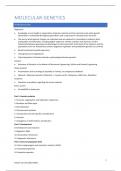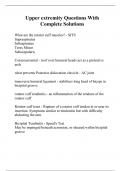1894 Born in Kalinovka, Russia
1918 Joined Communist Party
1934 Became party boss in Moscow & member of the Central Committee
1938 Became party boss in Ukraine
1949 Became party boss in Moscow again
1953 Became 1st Secretary of the Communist Party of the USSR
1955 Replaced Malenkov as de facto Soviet leader
1958 Became Chairman of the Council of Ministers (PM)
1964 Removed from power as PM & First Secretary
1971 Died
Rise to power…
Joined Communist Party in 1918
Served under Stalin with total loyalty
Part of Stalin’s terror…
Friends with Kaganovich & helped him with Ukrainian famine Holodomor
Head of Moscow 1944 purges & NKVD order 00447
Signed off/ approved of famines
Exceeded purge quotas told to shoot 5000 but shot 8500
NOT seen as the LIKELY inheritor of power Malenkov or Beria seemed most likely
Malenkov: succeeded Stalin as 1st Secretary of the Communist Party & Prime minister
Beria: had great power as Minister of Internal Affairs = given control of Stalin’s terror machine…
also, a mass murderer & serial rapist feared by fellow party members if he was to come to power
Getting rid of his competition…
When became clear Beria was trying to seize power Khrushchev teamed up with Malenkov &
Marshall Zhukov (army commander) to ARREST & EXECUTE Beria
Beria = arrested in June 1953 & executed in December 1953
After Beria’s arrest Khrushchev = still last in the Presidium & Malenkov = 1st
Malenkov
Less dominant than he seemed forced to RESIGN as 1st Secretary of the Party within a week of
Stalin’s death = seen as weak by other party members
Khrushchev = elected 1st Secretary in September 1953 & used this position to promote his
supporters to important party positions (as Stalin had done)
June 1954 Malenkov = no longer 1st in Presidium
February 1955 Malenkov forced to RESIGN as PM = clear that Khrushchev was now USSR leader
, Khrushchev as leader…
Defeated coup attempt against him in June 1957 by Stalinists (in favour of Stalin) Malenkov,
Molotov, Kaganovich
Removed Zhukov as army commander in October 1957 as saw him as a possible threat could
stage mutiny against K etc…
Khrushchev became PM in September 1958
Key Debate 1: How Far Did de-Stalinisation
Represent a Genuine Break with the Past?
End of December 1955 Khrushchev proposed that a commission be set up to look into Stalin’s
activities paying particular attention to the executed party officials
Cynics De-Stalinisation was little more than a ruse concocted by a miserable group of
opportunists to preserve the power of the soviets
Optimists Khrushchev still believed in the essence of Marxist-Leninism and that he still really
believed in the potential of socialism
Was De-Stalinisation a significant change?
Yes No
Secret speech: No change in politics:
K said that… Edward Crankshaw (historian) argues…
Stalin = dictator and enemy of the De-Stalinisation = unsuccessful but did
Russian people create Stalinism without tears
Lenin had never wanted Stalin to be No attempt to reduce power of
leader Communist dictatorship
Stalin hadn’t prepared properly for the Consolidation of power by promoting
1941 German invasion & was militarily his own supporters to the Presidium
incompetent same methods of patronage & control
Torture had been extensively used on which ensured state of corruption
Stalin’s orders to extract so-called remained in USSR
confessions from former party Restrictions began to be imposed from
colleagues 1960, when KGB (Secret Police) was
Thousands of innocent people had given more power
been executed at Stalin’s orders K wanted people to criticise Stalin but
Stalin had been responsible for the not the Soviet system
mass deportation of ethnic minorities Main policies of Stalin = overlooked,
during WW2 this was intentional, with little
Stalin was guilty of “megalomania” & condemnation of his policies before
“self-glorification” which led to the 1934 shows general acceptance of
“cult of personality” Stalin’s major policies which K had been
Consequences of Speech… heavily involved in
‘Secret Speech’ = sent to local party K’s reforms of party organisation
organisations to be read to all rank- provoked so much resistance that they
and-file members and even broader were never fully implemented &
audiences total of 20-25 million swiftly reversed after his fall
people Censorship continued:
, Students at Moscow State University Boris Pasternak = not allowed to
boycotted the university canteen receive his Nobel prise for Literature
In school’s students tore Stalin’s for writing Doctor Zhivago in 1958
portraits off the walls and trampled 1st exhibitions of abstract art = called
them underfoot ‘dog shit’ by K and were closed
617,000 political prisoners = Anti-religious propaganda =
rehabilitated (freed) strengthened, taxes on religious
Labour camps (gulags) = dismantled activity increased and churches &
Stalin’s personality cult = ended monasteries were closed
Orlando Figes = “Soviet system never Between 1959 & 1964 = about ¾ of all
really recovered from the crisis of Christian churches & monasteries in
confidence created by the speech USSR shut down
Allowed his political opponents to live: Mosques & synagogues = under attack
Punished Stalinists who tried to too
overthrow him by NOT KILLING THEM Terror and Repression continued:
but removing them from the Presidium Progress in rehabilitating those who
(ruling govt committee) appealed for release from detention on
Moved opposition to less significant political grounds = very slow: only 4%
positions of power, further away from had been allowed back to normal life
centre of power by 1955
Relaxation of censorship: USSR remained a 1 party state &
More freedom to writers and artists criticism outside boundaries laid down
from 1954 onwards by Party leadership could result in
Alexander Solzhenitsyn’s books which internal exile or removal to a
criticised the Labour camps was psychiatric hospital
allowed to be published in 1962 Secret Police (renamed KGB) still
Access to foreign media allowed for 1st existed & had evermore sophisticated
time & foreign visitors encouraged to methods of surveillance
visit USSR for 1st time K conducted his own purges, although
Removal of Cult of Personality: less terminal than Stalin’s army
Places named after Stalin = renamed… officers who weren’t sufficiently loyal
Stalingrad became Volgograd and to K = fired & given no hope of
Stalino became Donetsk obtaining civilian job or pension
Statues of Stalin = destroyed Basis of Stalin’s economic policies didn’t
1961 Stalin’s body = removed from change:
the Lenin Mausoleum in Red Square & K recognised need to catch up with
secretly reburied West but refused to reverse forced
Relaxing Terror: collectivisation of agriculture despite
Size and powers of Secret Police = evidence that private farms = more
reduced (MVD) productive
Gulag = dismantled & approx. 2 million Refused to allow private farms &
political prisoners = released between trading
1953 & 1960 Recognised need for emphasis on
Concept of the rule of law = consumer goods
reintroduced: no one could be arrested Tried to decentralise state planning but
or shot without trial on vague charges refused to allow free enterprise as
such as being an “enemy of the people” went against Communist beliefs
Absenteeism and leaving a job = no Reluctant to allow freedom to ethnic
longer a criminal offence minorities:
Political Changes: Continued Stalin’s russification policy
Party & govt officials = no longer faced Encouraged use of Russian in Ukrainian


